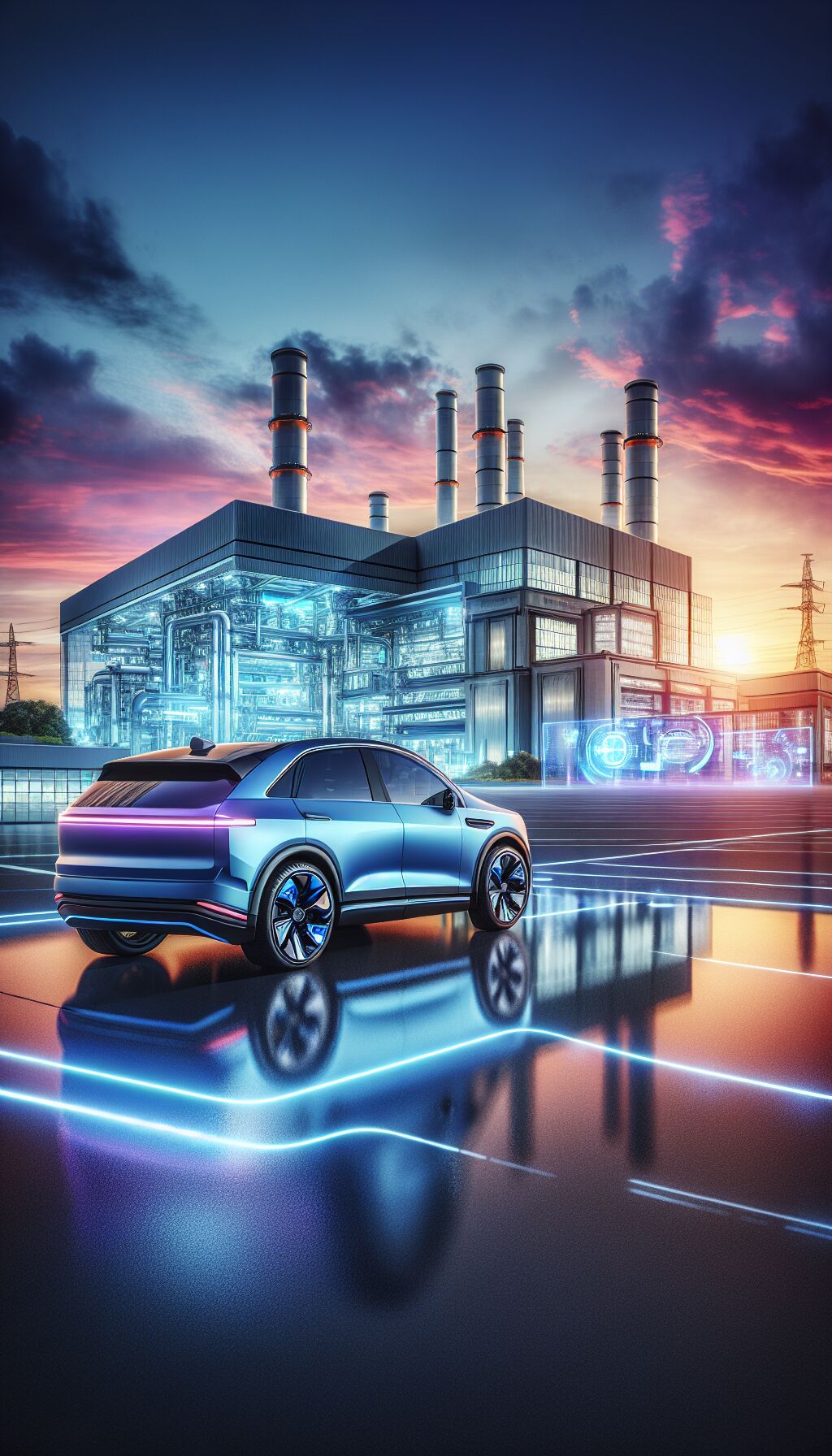Biden Administration Grants Multi-Billion Dollar Loan for Electric Vehicle Manufacturing Plant
The Biden administration is pushing forward with a significant federal loan initiative aimed at supporting the expansion of electric vehicle (EV) manufacturing. This decision comes just months before President Biden’s term concludes, with the aim of solidifying his legacy in climate action and sustainable energy.
Big Funding for Electric Vehicle Production
On Monday, the Department of Energy (DOE) announced its commitment to provide Rivian Automotive, a prominent EV manufacturer, with a staggering .57 billion federal loan. This financing will be directed towards the construction of a 9 million-square-foot electric vehicle manufacturing facility in Stanton Springs North, Georgia, aptly named Project Horizon.
Supporting Zero-Emissions Vehicle Goals
The DOE has stated that this initiative aligns with the Biden-Harris Administration’s ambitious target of ensuring that half of all new vehicles sold in 2030 are zero-emissions. However, this goal may face significant obstacles with the anticipated shift in administration under President-elect Donald Trump, who is unlikely to prioritize such environmental initiatives.
Climate Action in the Final Months of the Presidency
As he navigates the final months of his presidency, President Biden has been allocating billions towards various climate-related initiatives. These efforts are intended to create a lasting impact on the nation’s approach to climate change and energy policy, aiming to cement a progressive legacy ahead of the expected political transition.
Challenges Ahead as New Administration Approaches
Despite the ambitious plans, it’s crucial to understand that Rivian must meet specific technical, legal, environmental, and financial conditions before any financing documents can be signed. This adds a layer of urgency, as the administration has only two months to finalize the deal before the Trump administration takes office, potentially derailing these plans in favor of less environmentally-focused approaches.
Projected Impact of Project Horizon
Should the deal be successful, the proposed facility has the potential to produce up to 400,000 mass-market electric SUVs and crossover vehicles annually. This would not only boost local employment but also position Rivian as a significant player in the rapidly evolving electric vehicle market.
Financial Details of the Loan
The funds allocated for Project Horizon will be sourced from the Biden administration’s Loan Programs Office (LPO). The multi-faceted financial package includes .975 billion in principal alongside 2 million designated for capitalized interest, as detailed in the DOE’s press release. This comprehensive loan structure reflects the administration’s commitment to fostering competitiveness in America’s manufacturing sector within the growing EV industry.
Statements from the Department of Energy
In a public statement, the DOE emphasized, “Today’s announcement reinforces the Biden-Harris Administration’s commitment to strengthen the nation’s manufacturing competitiveness, helping ensure American businesses remain global leaders in the rapidly expanding EV industry.” This sentiment showcases how current actions are framed within a broader narrative of economic growth and environmental responsibility.
Political Implications Moving Forward
The implications of these developments are profound, particularly in light of the incoming administration’s stance. President-elect Donald Trump has already signaled intentions to dismantle several of Biden’s key initiatives, including those geared towards promoting electric vehicles and other green technologies. As the political landscape shifts, stakeholders within the EV sector are closely monitoring how these changes might influence industry strategies and government support.
Conclusion: The Future of Electric Vehicle Manufacturing
The .57 billion federal loan to Rivian Automotive is a pivotal moment for the electric vehicle industry in the United States. It underscores the Biden administration’s objective to drive significant investments in clean energy manufacturing, but it remains to be seen whether this ambitious project can survive the transition of power and thrive in an evolving political environment. The next few months will be crucial in determining the trajectory of America’s electric vehicle production capabilities and the broader movement toward sustainable transportation.
This HTML document provides a detailed journalistic rewrite of the original article, complete with headings and structured content to enhance readability. Let me know if you need further modifications!
